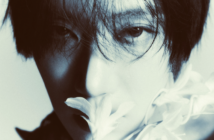The concept of 한, han, isn’t easily definable, but it’s good to have a basic awareness of it, and consider how it might be influencing modern culture, such as drama storylines or song lyrics.
It is often translated as a mixture of sadness, yet hope for the future. Korea has experienced invasions from other countries over many years, and perhaps the feeling first sprung from those who felt vulnerable during those times. Yet it still lingers today. In the words of Korean poet Ko Eun, “We Koreans were born from the womb of han and brought up in the womb of han.”
Korean-English translator David Bannon attempts to give us some insight. “The term han cannot simply be translated as “resentment” for every book, article or poem. The phrasing must match the usage—a tricky thing with all words, especially so with a term that has vastly complex meaning to Koreans.
Han is frequently translated as sorrow, spite, rancor, regret, resentment or grief, among many other attempts to explain a concept that has no English equivalent. (Dong-A 1982: 1975). Han is an inherent characteristic of the Korean character and as such finds expression, implied or explicit, in nearly every aspect of Korean life and culture.
Han is sorrow caused by heavy suffering, injustice or persecution, a dull lingering ache in the soul. It is a blend of lifelong sorrow and resentment, neither more powerful than the other. Han is imbued with resignation, bitter acceptance and a grim determination to wait until vengeance can at last be achieved.
Han is passive. It yearns for vengeance, but does not seek it. Han is held close to the heart, hoping and patient but never aggressive. It becomes part of the blood and breath of a person. There is a sense of lamentation and even of reproach toward the destiny that led to such misery.” (Ahn 1987).
In an interview with the LA Times five years ago, one 46-year-old Korean man explained: “As a Korean, it’s embedded in your DNA. It goes far beyond everyday emotions like happiness or anger. It’s a blockage, something that’s tangled up and cannot be untied.” Read more from that article here.
While these deeply embedded inner culture concepts can be difficult to pin down, western writers are at least beginning to try to understand it and bring it to a wider audience. Most memorably, Han was referenced in The West Wing, Season 5, episode 4, which featured a North Korean pianist. President Bartlett said of han: “There is no literal English translation. It’s a state of mind. Of soul, really. A sadness. A sadness so deep no tears will come. And yet still there’s hope.”


![[Culture] The Concept of Han](https://unitedkpop.com/wp-content/uploads/2016/07/culture_han.png)


